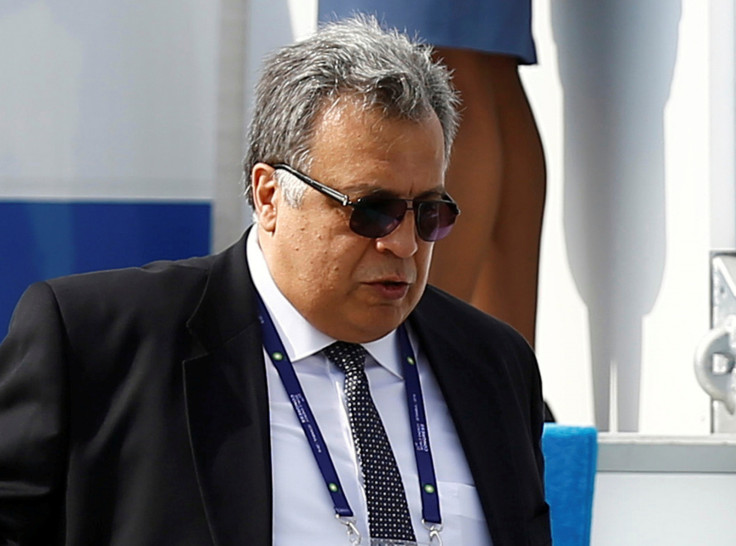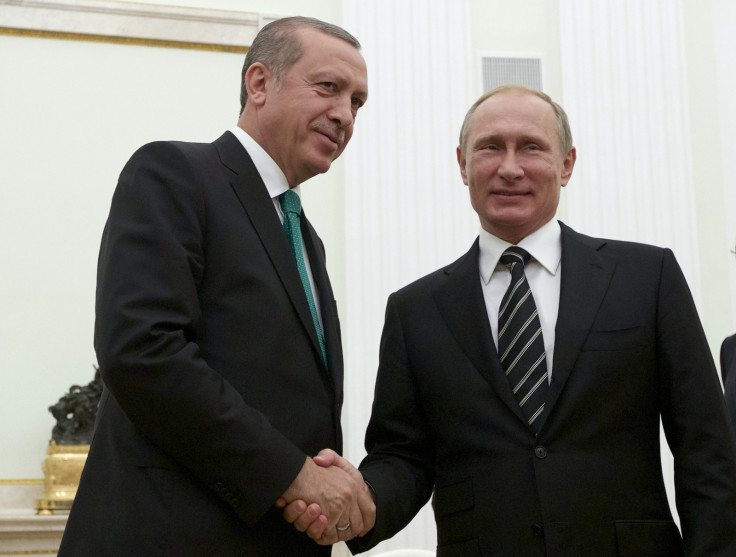What does assassination of Russian ambassador in Turkey mean for Moscow-Ankara ties?
Relations had been fraught in the past but nations had cooperated over Syria.
The assassination of Russian ambassador Andrey Karlov was immediately condemned by the international community but attention quickly turned to what it will mean for relations between Moscow and Ankara.
Turkey's interior minister, Suleyman Soylu, said the killer was Mevlut Mert Alintas, 22, who had been working for the riot police squad in the capital for the past two-and-a-half years.


The US State Department is warning its citizens to steer clear of the American embassy in Ankara which is located about 4km from the Cer Modern gallery where the killing of Karlov took place, referring to an "ongoing security incident".
Russian foreign ministry spokesperson, Maria Zakharova said: "It's a tragic day in the history of our country and Russian diplomacy.
"Ambassador Karlov has made a lot of personal contributions to the development of ties with Turkey. He has done a lot to overcome a crisis in bilateral relations. He was a man who put his heart and his soul into his job. It's a terrible loss for us and also the world."
US Secretary of State, John Kerry called the killing a "despicable attack" which was "an assault on the right of all diplomats to safely and securely advance and represent their nations around the world".
Damascus called the attack "terrorist and cowardly" as ties between Ankara and Moscow were put under the spotlight, given their importance in the Syrian civil war.
Relations had been fraught in the past, especially after the shooting down by Ankara of a Russian plane in 2015, but their cooperation in Syria helped pave the way for an agreement in the Turkish capital to evacuate the Syrian opposition from Aleppo.
The reaction from Moscow has been measured so far, with the head of the Russian government's international affairs committee saying: "There will be no fresh cooling in relations between Moscow and Ankara, no matter how strongly our strategic opponents in Ankara and the West want this.
"This is not going to happen. There are differences between us. It's a horrendous tragedy, but relations between our states will not suffer."
Meanwhile, the former British ambassador to Russia, Sir Tony Brenton, told Sky News he expects ties between the countries to actually strengthen.
"The Turks have responded exactly right. They have killed the killer, Erdogan has been on the phone to Putin ... and it will reaffirm the Russian view of the enemy they are dealing with," he said.
"This man, some of the language he used smacked of Islamism, smacked of links with the so-called Nusra front. They will see the enemy they are dealing with in Syria as being Islamist and terrorist, and it will reinforce the determination to deal with it vigorously".
The global intelligence analysis company Stratfor said that attack will strain ties but will not rupture them.
"Moscow will lean heavily on Ankara for intelligence-sharing and will demand more autonomy in protecting its assets," it said.
"Yet neither country is keen to backtrack on the economic and diplomatic progress made over the past year. And now that Turkish forces are active deep within Syria, Ankara needs to maintain a working relationship with Moscow now more than ever."
Despite the killing, talks will go ahead in Moscow on Tuesday (20 December) to discuss Syria involving Iranian, Russian and Turkish foreign ministers.

© Copyright IBTimes 2024. All rights reserved.






